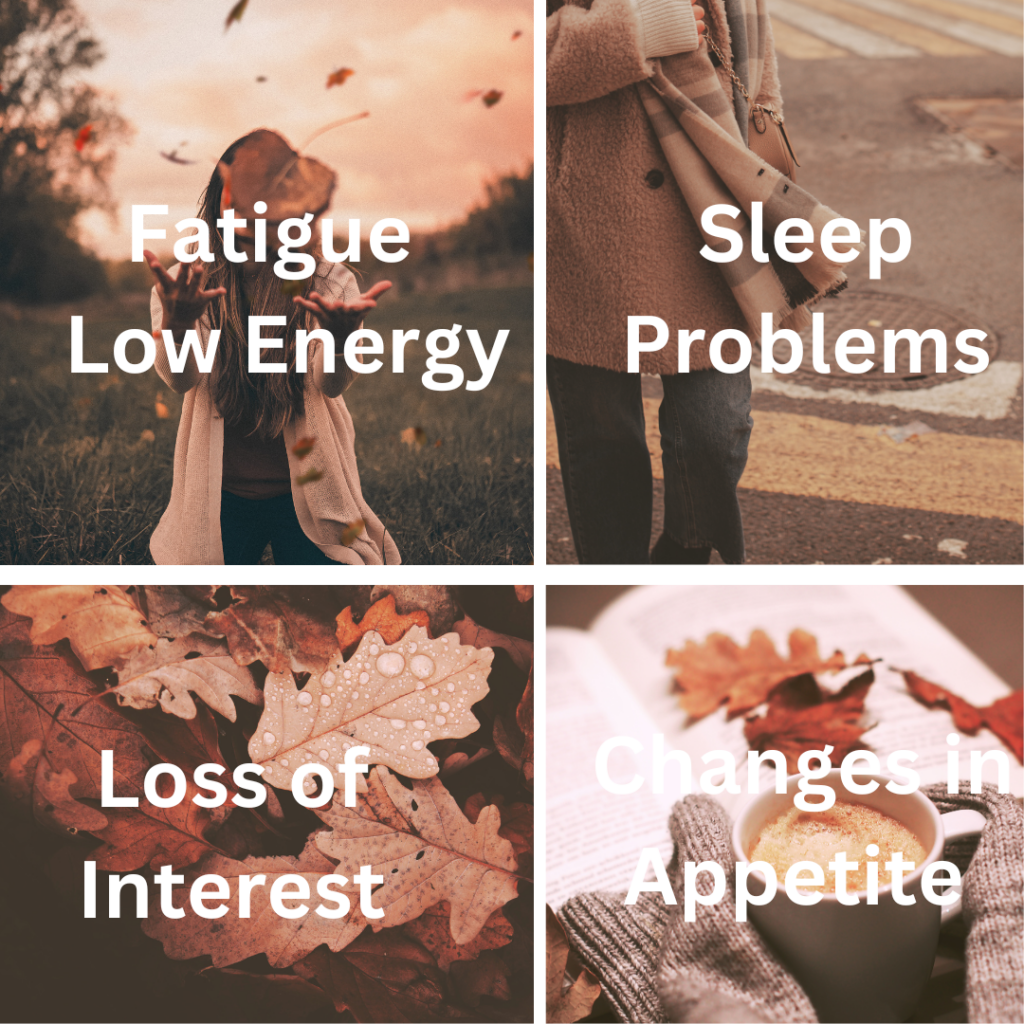Photo: Denys Nevoshai
Some people love winter. They love the quietness, soft and cozy throws, staying home with hot chocolate, feeling cool outdoors, watching their dogs run free and silly, playing with the snow, and practicing winter sports.
Other people find winter challenging for their mental health and overall mood. They experience the colder weather as the primary contributor to feeling depressed, irritable and isolated.
Seasonal Affective Disorder (SAD) is a type of depression that occurs most commonly in the fall and winter months when daylight hours are shorter. The theory is that reduced sunlight exposure can disrupt the body’s internal clock and affect serotonin levels, a neurotransmitter associated with mood regulation. When the levels of serotonin are lower, they can lead to signs of depression.
Common Symptoms of Seasoned Affective Disorder.
How Can You Take Care of Your Mental Well-Being?
Get as Much Natural Light as Possible
Exposure to sunlight helps boost serotonin and melatonin, which can improve mood. Whenever possible, try to get outside during daylight hours, especially in the morning or noon hours.
If you can’t get outside, consider a light therapy box. Talk to your family doctor, pharmacist, or nurse practitioner about how to use Light Therapy. If recommended by your health care provider, some extended benefits and health insurance will cover the expenses of a light lamp.
Stay Active
Physical activity can reduce symptoms of depression and anxiety by increasing endorphins. Staying active is beneficial, even just a short walk or gentle stretching at home. Cleaning and organizing your wardrobe or the kitchen are ways to move and stay physically active! Don’t desestimate the power of moving at home!
If your budget is tight these days, there are plenty of options online to learn dancing steps, yoga, Taichi, or any of the classes most gyms and studios offer.
Moving your body indoors can also make a big difference if you do not like the cold.
Create a Cozy, Nourishing Environment.
Some enjoy soft blankets, warm lighting, and soothing scents like lavender, cinnamon, or mint to create a relaxing atmosphere. A nurturing and calming environment is inviting for indoor hobbies or projects, such as crafting, colouring mandala books, reading, cooking, or starting a new TV series, which can help you pass the time in a fulfilling way.
Be gentle with your body.
Winter cravings for carbs and sugary foods are common. Who doesn’t enjoy the Christmas leftovers, eh?! Being mindful of adding a balanced diet of fruits, vegetables, and protein can improve energy and mood.
Talk to your pharmacist or family doctor about Omega-3s and Vitamin D. Some evidence suggests that these nutrients have been linked to improved mental health. Your healthcare provider may recommend adding fish, fortified tofu and nuts.
Stay Socially Connected
Stay in touch with your friends and family, or consider building a community with like-minded people, volunteering, or reading at the library or a cafe instead of your home. Maintaining social connections through calls, messages, virtual hangouts, going to the movies, indoor walks, or exploring new food venues is paramount for remaining engaged and vital.
Having plans with friends, neighbours or family, indoors or outdoors, can break up the monotony and give you something to look forward to.
It’s okay if winter slows you down. Show yourself kindness, and develop reasonable expectations. Consider starting mindfulness practices like meditation, slow movement, or deep breathing exercises. They can help you navigate stress, increase awareness of your thoughts and feelings, and provide emotional stability.
Seek Professional Help if Needed
Talking with a therapist can provide support and coping strategies if you’re struggling significantly.
For some, medications can be helpful, especially for conditions like SAD. Consulting with a health professional can clarify options if other strategies aren’t enough.
Click here for mental health crisis resources.



